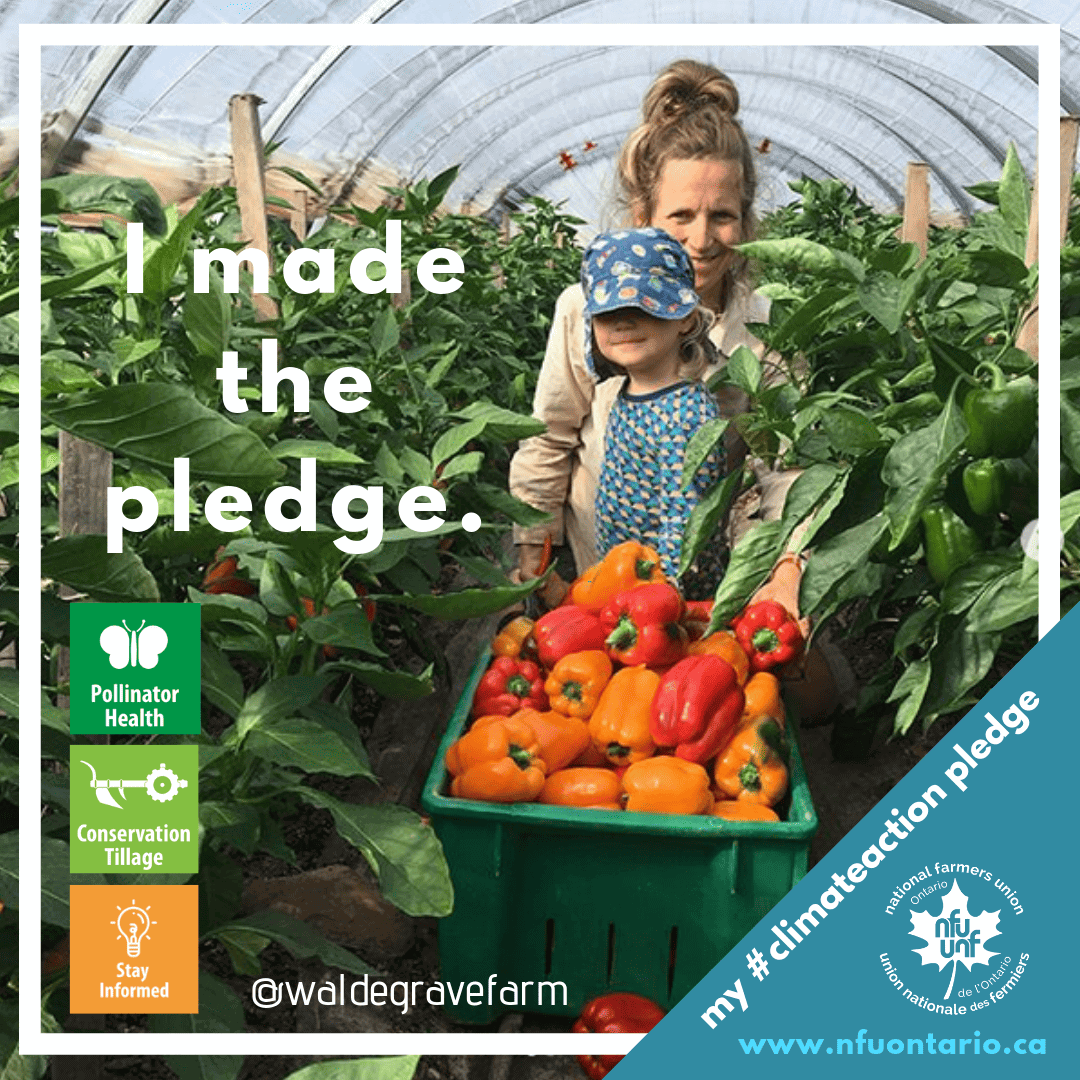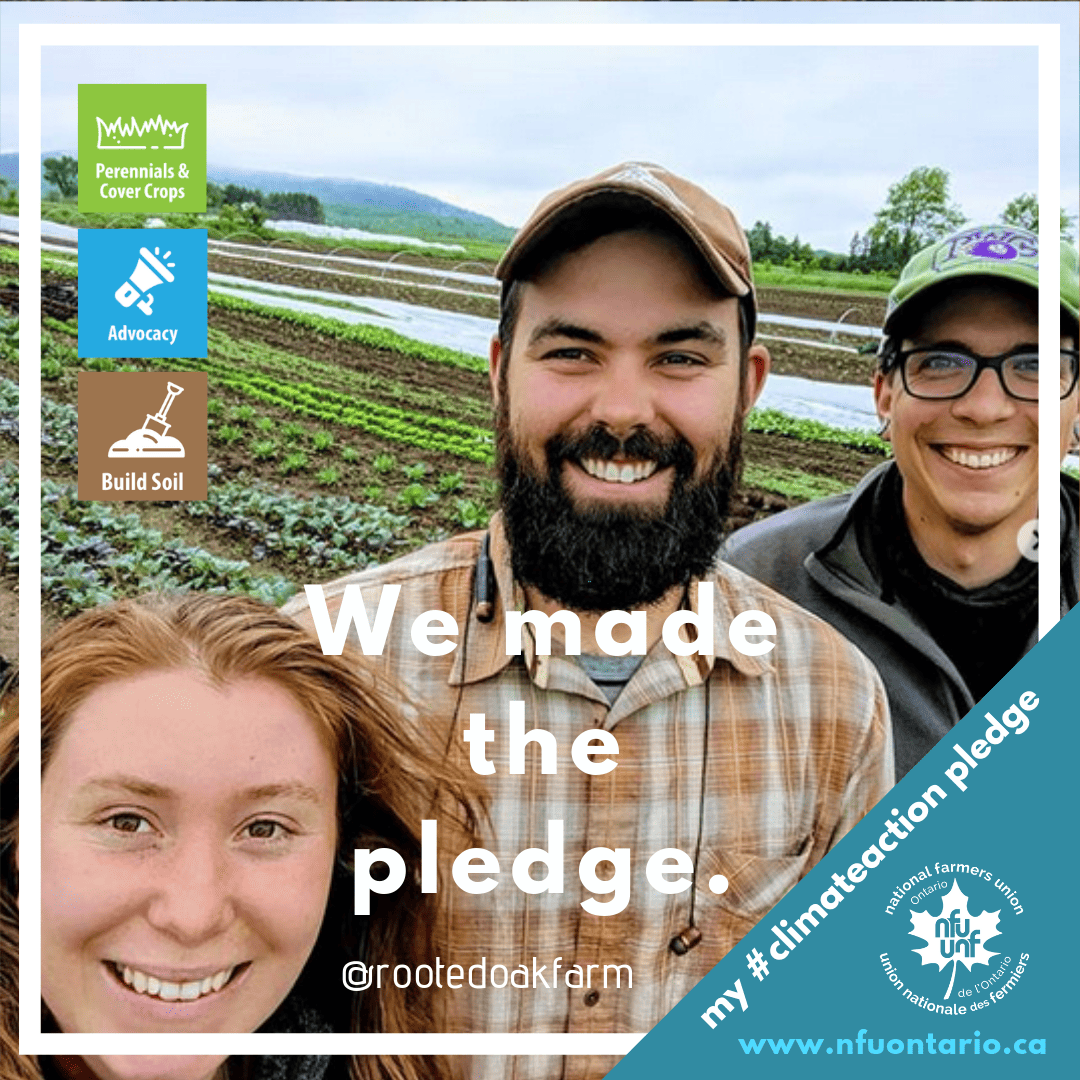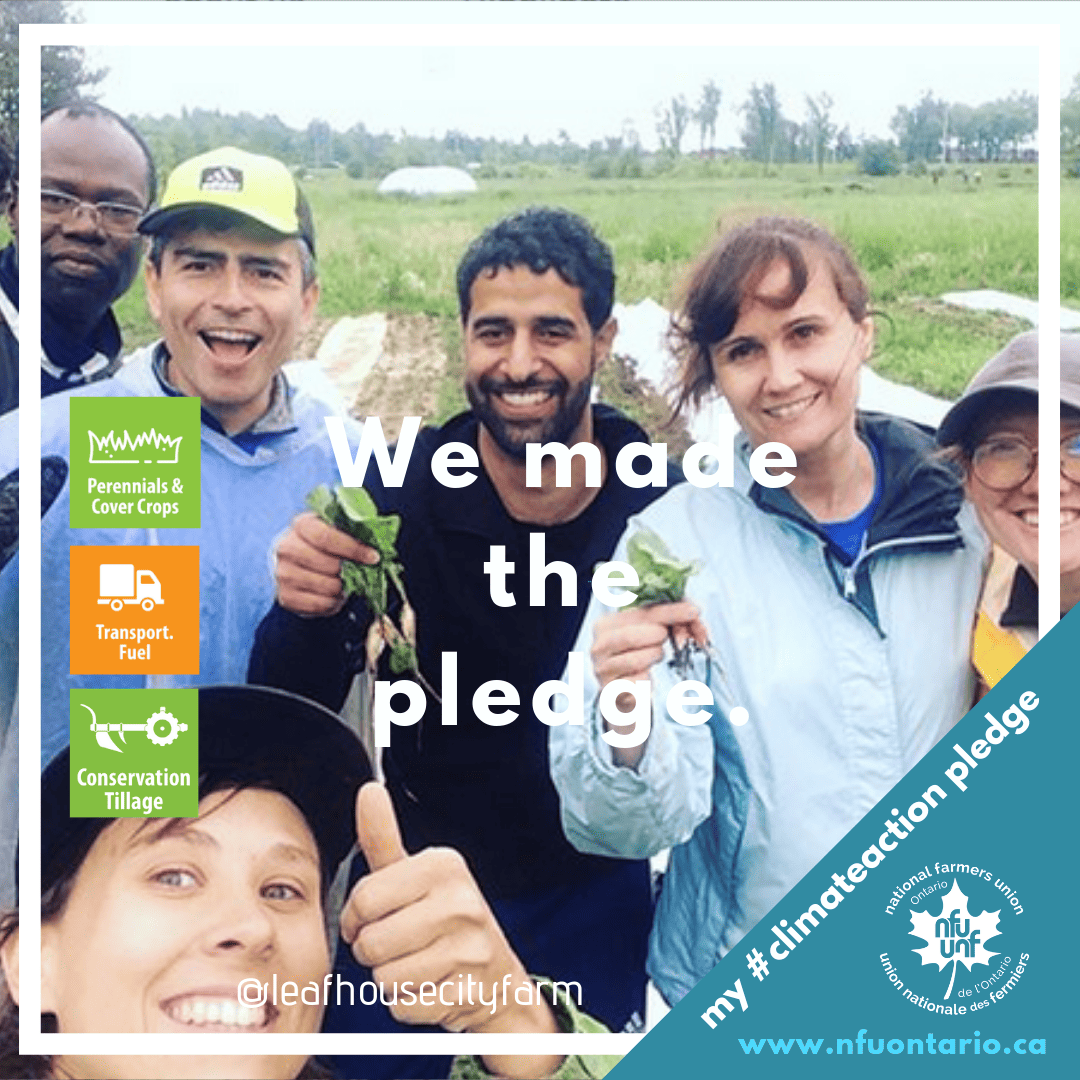Urgent climate action is needed in Ontario.
Ontario is a high-latitude region in the continental interior, because of this temperatures in Ontario are rising at nearly twice the global average. Despite this, the province lacks a cohesive plan to deal with climate change, and political leaders have been apathetic to existing policy on climate change. These policy shortcomings are partly due to misunderstandings and lack of understanding of climate change in Ontario, including in rural areas.

Farmers are on the front lines.
Farmers are disproportionately affected by changing climate but also have ample opportunities for action as they are directly responsible for stewardship of a large portion of Ontario’s land.
Implementation of climate mitigation efforts are often impeded by the fact that some rural communities worry plans may be imposed unilaterally or without consultation. The controversy about wind turbines is a key example of this.
Conversation and engagement will be crucial to identifying roadblocks to action, educating and sharing information, and mobilizing key actors in food and farm sectors.
Real farmers, making real change!
To enable coordinated action on climate change we needed more farmers and rural people to participate in discussion, education, and engagement around climate mitigation. The NFU-O’s Climate Action Project set out to do exactly that.
The NFU-O has been active on climate change for years. Our 2019 Climate Action Project brought together 300 people across Ontario for “Kitchen Table Meetings” (KTMs) on climate change and agriculture. The KTMs empowered farmers to take deliberate, immediate actions to benefit the environment by providing information about climate change and available financing programs, as well as encouraging community-level analysis, networking, and problem solving.
The project culminated in a large, multi-day convergence of young farmers in Ontario in March 2019 which included workshops, networking opportunities, and strategy sessions.
Sample actions that farmers implemented on their farms included:
- Changing cultivation methods to protect soil health and increase soil carbon;
- Planting trees or protecting hedgerows;
- Improving habitats for species at risk due to climate change; and
- Using their authority as farmers to promote climate action to customers and community members via social media and direct discussion.
The Climate Action Project empowered 87 Ontario farmers to commit to changes on their farms to mitigate climate change. Many of those participants remain NFU-O members who continue to implement the climate-friendly changes on their farms that they committed to back in 2019.
The Climate Action Project was made possible through funding from Environment & Climate Change Canada’s Climate Action Fund.
I find it difficult as a small ecological farmer sometimes when the sector is run pretty much by big ag. They don’t want to hear from us little farmers. But everyone’s voice is important, especially in the face of climate change. Through the Climate Action Project I had the opportunity to find my voice and to connect with other like-minded farmers who shared the same concerns.
– Laura Boyle, High Spirits Farm (Pontypool, ON)
Climate Action Project Participant
Want to learn more about climate action?
Frequently Asked Questions
No, this program is not still actively running. However, that should not stop you from learning more about & committing to climate-friendly practices on your farm! Visit the resources section above to view the Climate Action Menu of actions you can implement on your farm.



